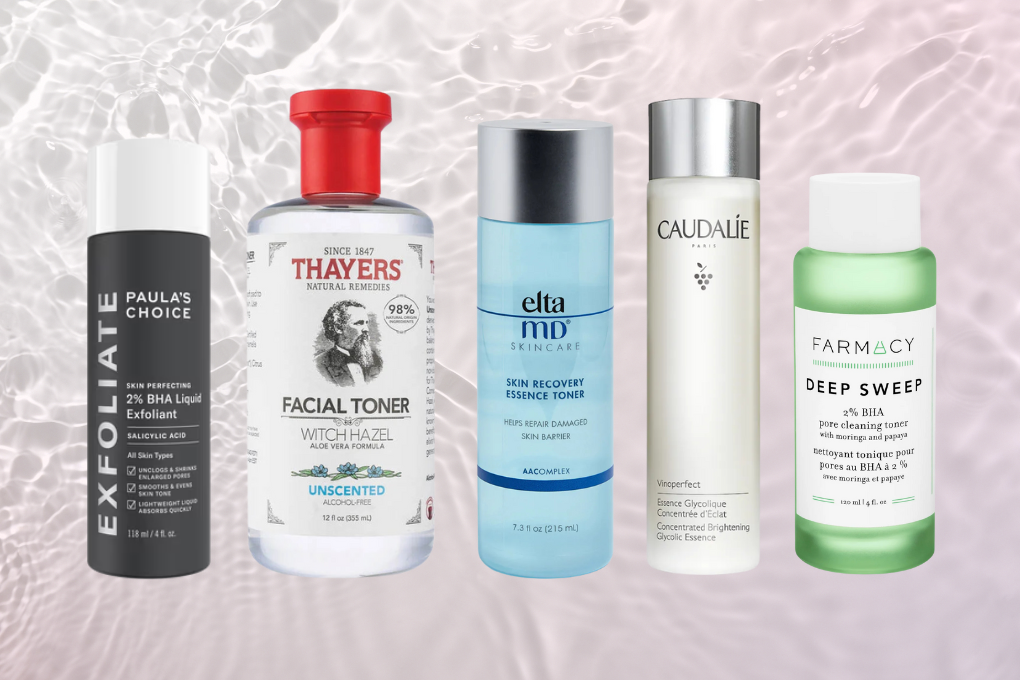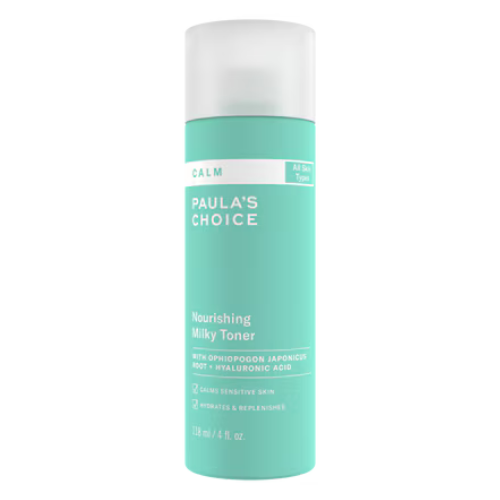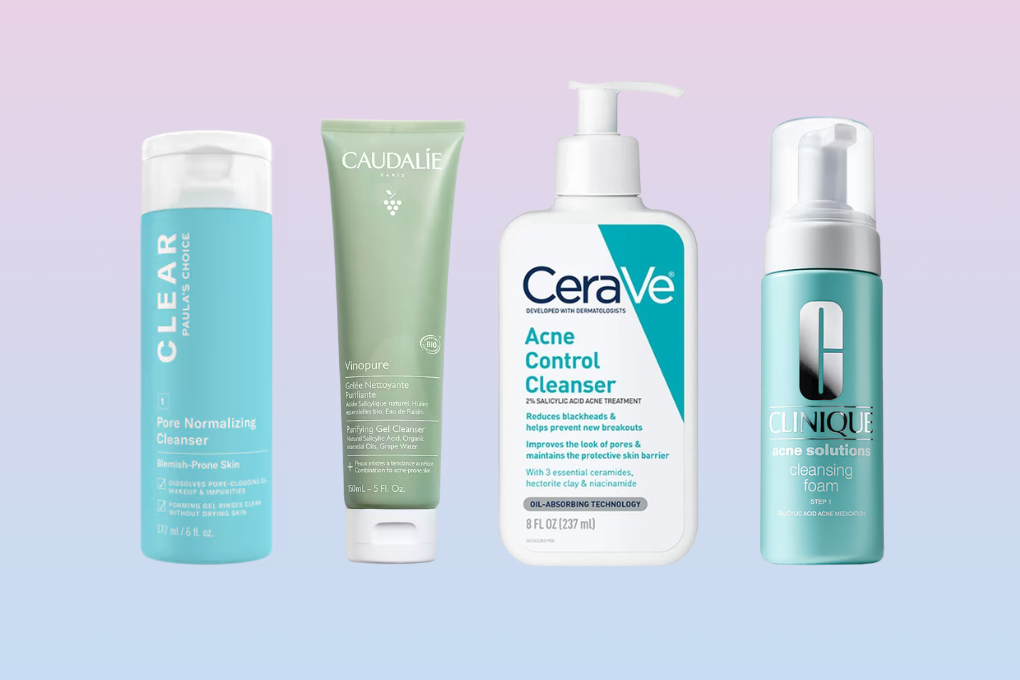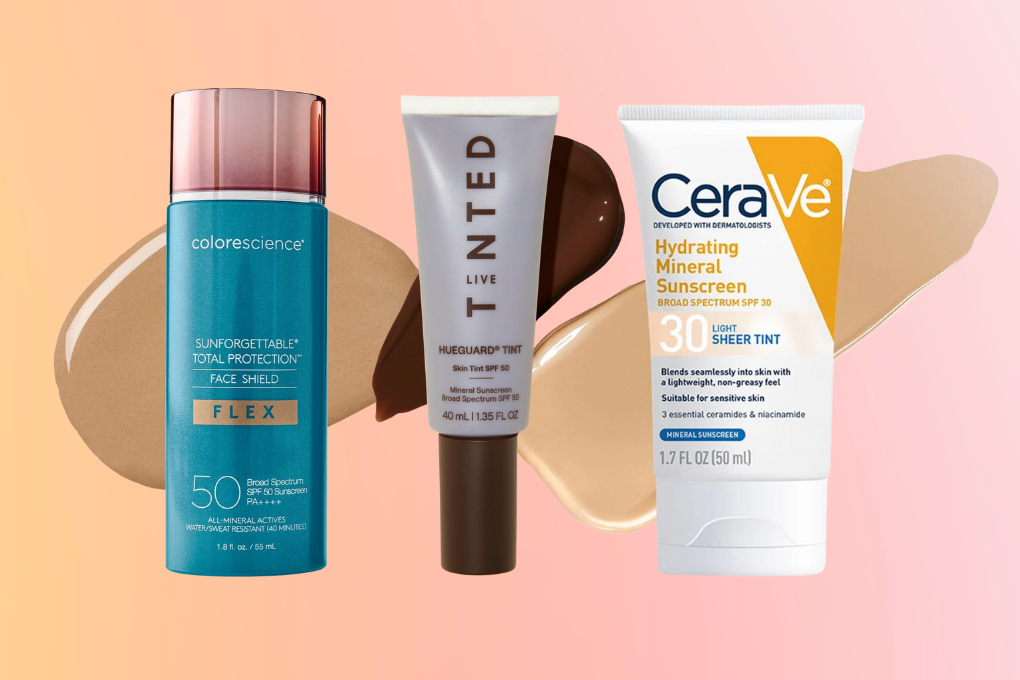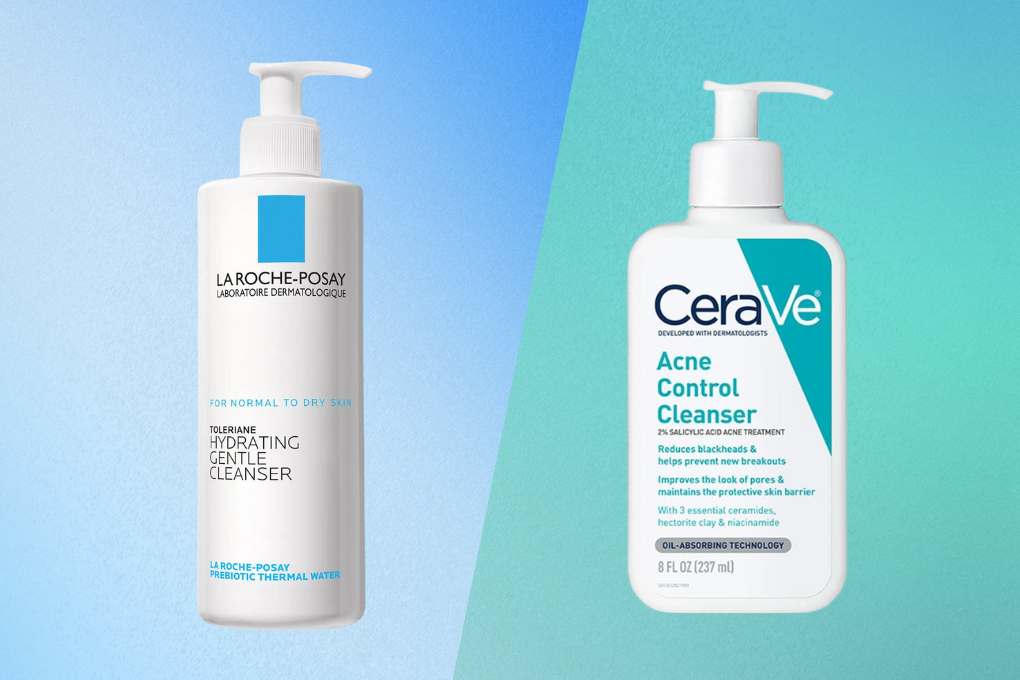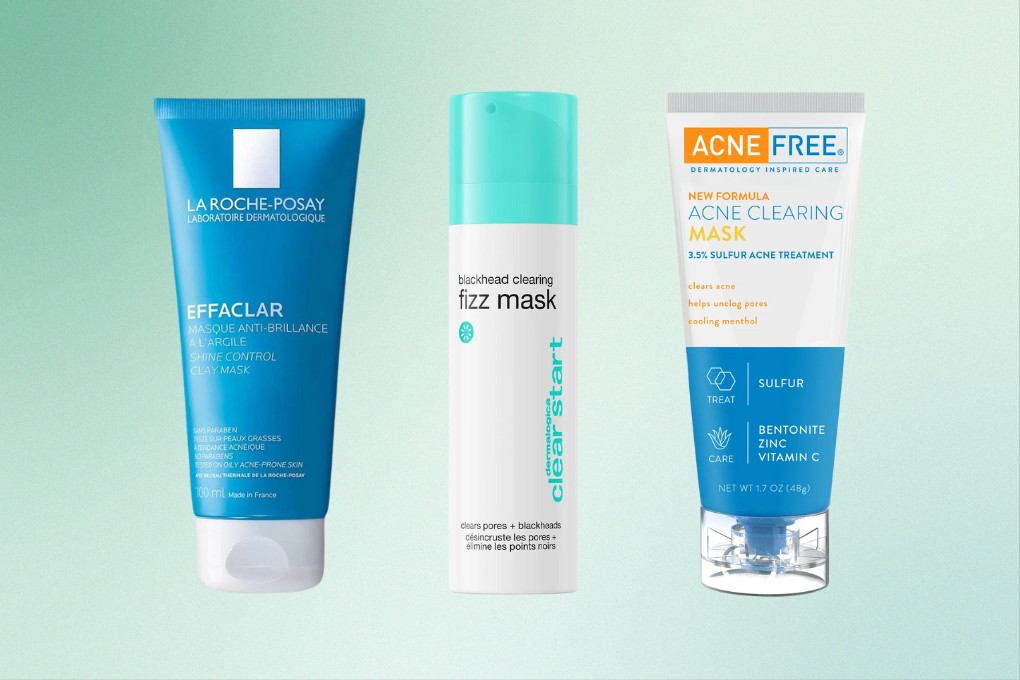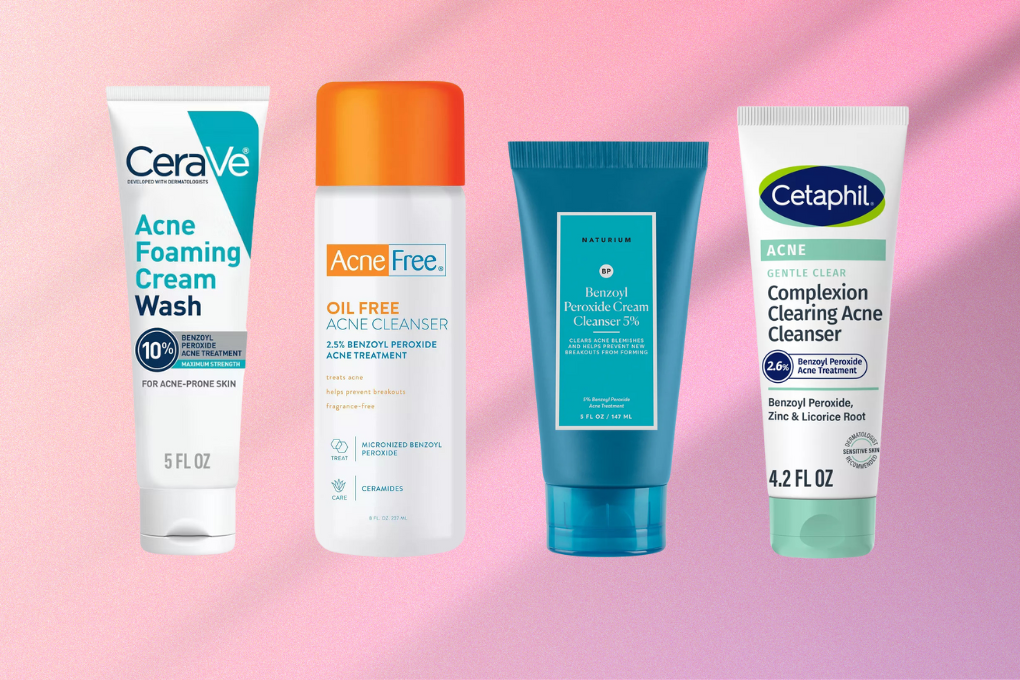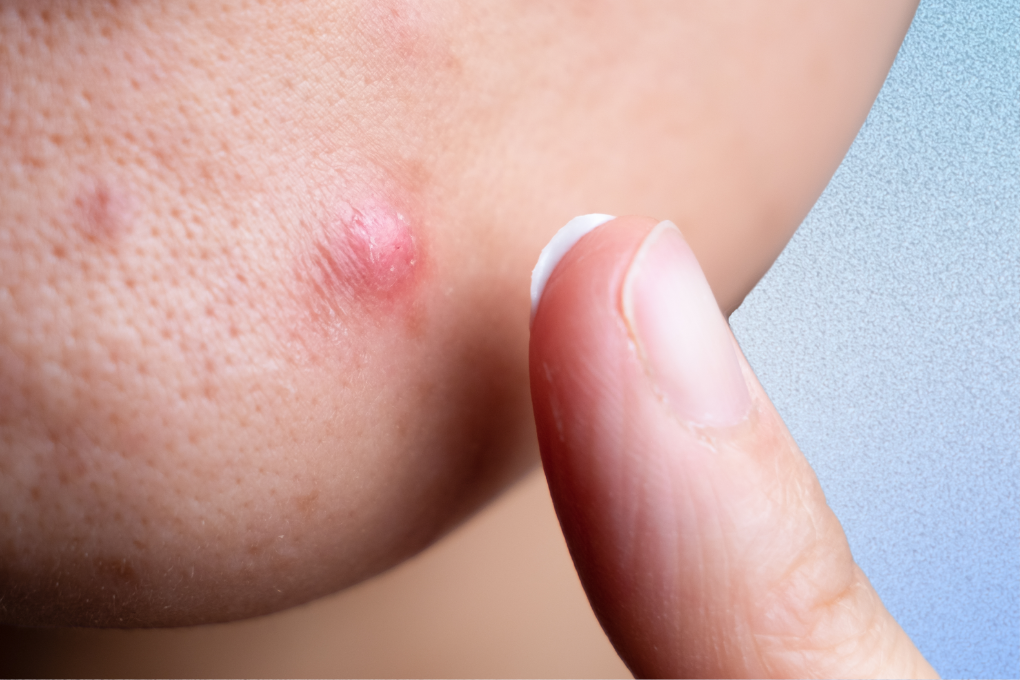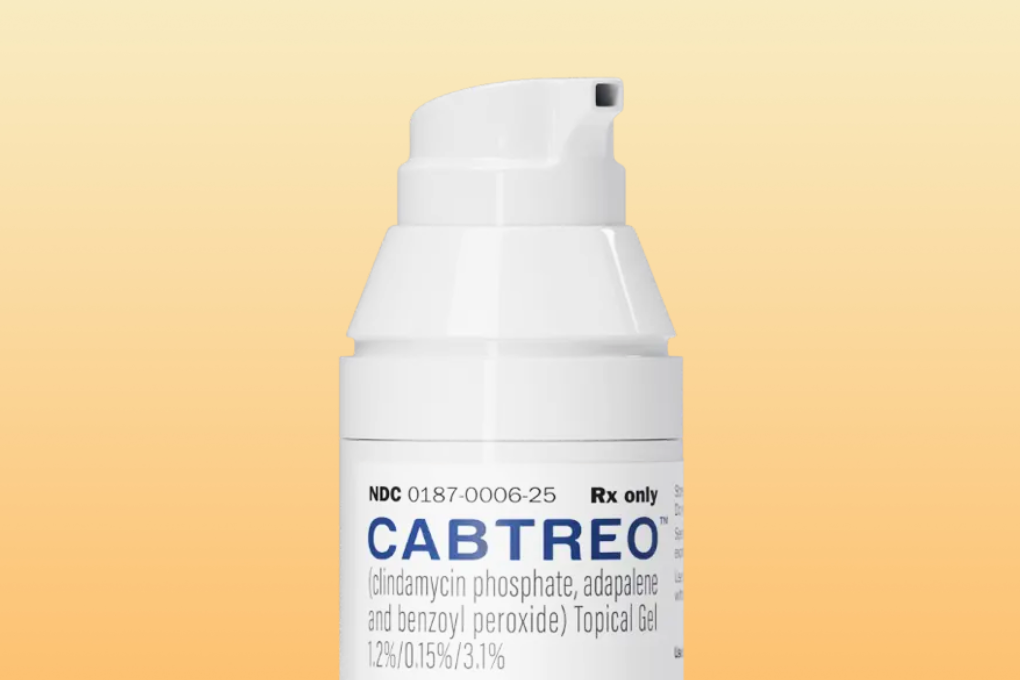Skincare routines for acne-prone skin can be complicated, and adding yet another product to the mix might seem unnecessary. Toners, in particular, can be confusing. Do they help, or are they just an extra step? And what is the best toner for acne?
Best Toners for Acne
If you are already happy with your routine and don’t use a toner, there is no need to add one. The best toner for you will depend on what your skin needs.
If you have dehydrated or irritated skin from drying acne treatments, a hydrating toner can add a layer of lightweight hydration that soothes and supports your skin barrier. Applying your moisturizing toner to damp skin will help draw in more hydration.
Or if you struggle with excess oil and are not currently using an acne treatment, a salicylic acid toner, or a refreshing witch hazel toner, might be the only treatment you need.
And if you are working with closed comedones (whiteheads) or hyperpigmentation, AHAs like glycolic acid, lactic acid, and mandelic acid increase cell turnover, which can help unclog pores, reduce pigmentation, and improve overall skin texture.
Paula's Choice Skin Balancing Pore-Reducing Toner with Ceramides, Chamomile, and 1% Niacinamide
The Pore Reducing Toner from Paula's Choice is a hydrating toner made for oily or combination skin types to balance the skin and minimize pores. It uses antioxidants, plant extracts such as chamomile and burdock, to soothe and defend from environmental stressors. Niacinamide helps even skin tone and reduce the appearance of pores, while ceramides and cholesterol help reinforce the skin's barrier to better retain moisture.
- Hydrates and balances oily skin
- Niacinamide minimizes pores
- Cholesterol and ceramides strengthen skin barrier
- Niacinamide may be irritating for some people
The Ordinary Glycolic Acid 7% Exfoliating Toner with Brightening and Smoothing AHA
The Glycolic Acid Exfoliating Toner from the Ordinary contains 7% glycolic acid to remove dead skin cells and even skin texture, along with Tasmanian pepperberry extract to reduce irritation that can come with exfoliation. While ostensibly a facial toner, many people find it a multi-use product for the whole body. Its exfoliating properties can help with body acne, dandruff, keratosis pilaris bumps on the arms, and it can even be used as a deodorant to reduce body odor.
- 7% glycolic acid helps smooth skin texture
- Tasmanian pepperberry extract helps soothe
- Can also be used on body or as deodorant
- Can be irritating for sensitive skin, start slowly
Paulas Choice Skin Perfecting BHA Liquid Exfoliant with 2% Salicylic Acid
Paula's Choice 2% BHA Liquid Exfoliant is a fan favorite for good reason. This lightweight toner refreshes skin and uses 2% strength of salicylic acid to exfoliate and clear pores. It has an optimal pH, which is important for exfoliants to get maximum effectiveness without irritation, and it contains soothing green tea to support the skin’s barrier. But watch out because this gentle formula is still strong, so remember to ease into use.
- Optimal pH for acid
- Green tea to soothe and support skin barrier
- Expensive
- Too strong for some skin types
REN Clean Skincare Ready Steady Glow Daily Tonic with Lactic Acid and Salicylic Acid
Ready Steady Glow Tonic by Ren Skincare contains the best of both worlds, with both lactic acid and salicylic acid in its formula. Lactic acid helps remove dead skin cells from the surface to smooth, while salicylic acid can penetrate oil to help clear pores. This dual approach is a great option if you have oily skin and blackheads, but would also like to address skin texture and tone. Additionally, azelaic acid precursors help brighten skin and fade hyperpigmentation.
- Lactic acid smooths texture
- Salicylic acid helps keep pores clear
- Azelaic acid precursors help even skin tone
- Contains fragrance
- Citrus oils may be irritating for some skin types
Paula's Choice CALM Nourishing Milky Toner for Sensitive Skin and Redness
Paula's Choice Nourishing Milky Toner from their Calm line of products is full of skin-replenishing ingredients and antioxidants to soothe redness and sensitivity by supporting the skin barrier. Hyaluronic acid and glycerin hydrate the skin, while allantoin, panthenol, and marshmallow root extract help reduce redness and calm the skin. This toner is designed to strengthen the skin barrier to prevent future sensitivity, making it an excellent choice if your skin is irritated from harsh acne treatments.
- Gentle for sensitive and rosacea-prone skin
- Strengthens skin damaged from acne treatments
- Supports skin barrier to prevent future sensitivity
- Expensive for the size
COSRX AHA 7 Whitehead Power Liquid with 7% Glycolic Acid and 2% Niacinamide
AHA 7 Whitehead Power Liquid from Korean brand COSRX is made to target whiteheads, also known as closed comedones. This toner/essence uses 7% glycolic acid to help skin shed dead skin cells and increase cell turnover, which will gently clear whiteheads and unclog pores. While glycolic acid gets rid of texture, niacinamide helps even skin tone and reduce excess oil, hyaluronic acid hydrates, and panthenol soothes irritation.
- Glycolic acid to gently clear whiteheads
- Niacinamide and panthenol brighten and soothe
- Too strong for daily use for some skin types
What Do Toners Do?
While toners used to be associated with alcohol-based formulas that dried out the skin, today’s options have come a long way. The good news for those of us with acne-prone skin is that modern formulations have evolved to offer so much more, focusing on hydration, balancing pH, and delivering targeted treatments that address specific skin concerns.
Toners are a versatile skincare step that can complement your routine and enhance the effectiveness of other products. By balancing your skin’s pH after cleansing, toners can prepare your face to better absorb your serums and moisturizers so you can get the most out of them. A targeted toner also contains ingredients that help address specific concerns like clogged pores, dehydration, oiliness, and inflammation.
Toners can be a great addition to your routine, but knowing if you need a toner and which type works best for various skin types can make a difference. And while toners can be very effective for acne-prone skin, they work best when paired with a complete routine that includes gentle cleansing, targeted acne treatments, and plenty of hydration.





